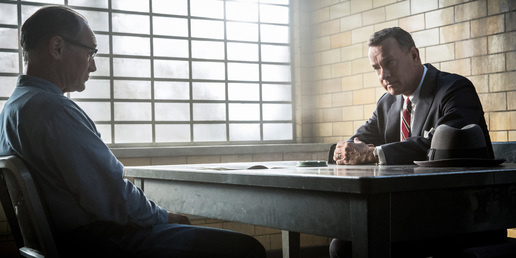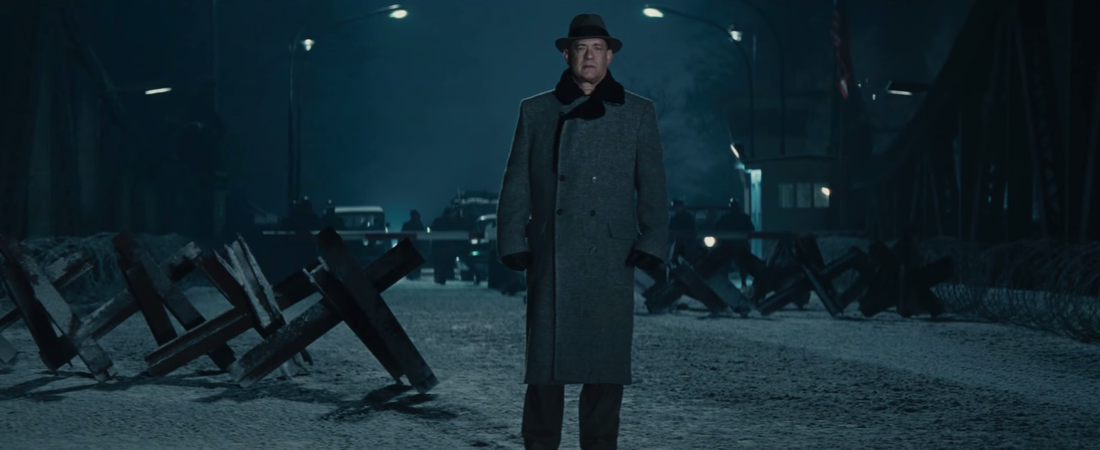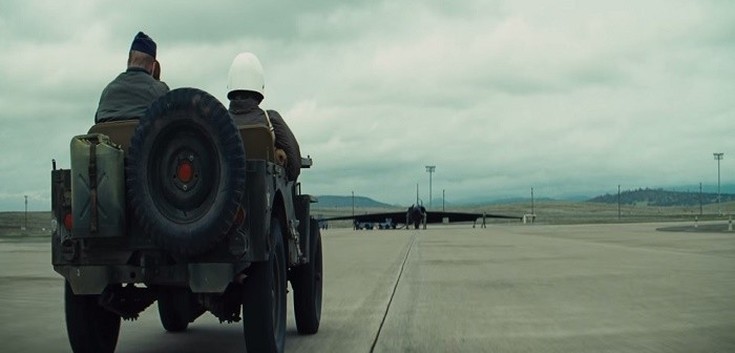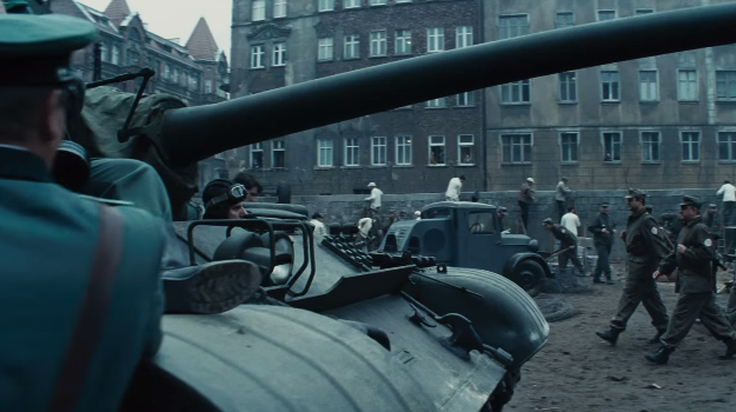 Taking place in the middle of the cold war, Steven Spielberg's Bridge of Spies tells the incredible true story of James B. Donovan, an insurance lawyer, who finds himself recruited by the CIA to help with intense negotiations over the exchange and release of Francis G. Powers, a CIA U-2 pilot who was arrested in Russia, and Rudolf Abel, a KGB intelligence officer, who was arrested in the United States for espionage. Let me start off by saying that I'm not much of a fan of Steven Spielberg as a dramatic filmmaker, much preferring his more escapist type entertainment films such as Jaws, Duel, and Raiders of the Lost Ark. That being said, Bridge of Spies surprised me quite a bit, being one of Spielberg's most impressive films from a thematic standpoint. The film begins with a rather elaborate spy sequence, which finds the CIA arresting Rudolf Abel in New York City. It's an enticing and enthralling sequence, but what makes it so important is that it reveals that Rudolf Abel is in fact a soviet spy, letting the audience in on something that is somewhat ambiguous to our main character, James B. Donovan, as well as everyone else. Why this is important is that Spielberg is essentially acknowledging early on that it doesn't matter that this man is a Russian spy, with Spielberg's thematic intentions set on capturing the danger associated with unbridled patriotism and ones blind allegiance to a country over humanity. Through this incredible story, Spielberg's film captures how governments use people as vessels, dictated by overarching beliefs of power and security which essentially make us all pawns. While probably not as biting a criticism as I'm making it out to be, Bridge of Spies certainly raises interesting questions about how the allegiances we have towards our countries can outpace our allegiances to humanity. Given the setting, Bridge of Spies is a film that effectively captures the hysteria during the cold war, showing the power of fear used by both the United States and Russia, which led to the United States going against its own ideals, such as due process and individual rights, hiding behind the vail of security in an attempt to win. The film shows how quickly the fundamentals in which a nation are built can be deteriorated in times of conflict, with much of the film's heart centered around James B Donovan's character being the lone man who stands up for the rights of Rudolf Abel. Spielberg will continue to be Spielberg in some regards, and Bridge of Spies still suffers from a few emotionally manipulative sequences, but what bothers me even more is his continued lack of nuance and subtlety at times, as if he never trusts the audience to be smart enough to put things together by themselves. While I wouldn't say Tom Hanks performance is particularly impressive, he really is perfect in this role, bringing a great sense of uneasy tension and subtle comedy to the role of a lawyer who finds himself in the middle of a major international incident during the Cold War. Far from perfect, Bridge of Spies is a film of Spielbergs which I simply cannot help but praise, being a film that sees the filmmaker speak on a more intellectual level than is typical for his efforts.
0 Comments
Leave a Reply. |
AuthorLove of all things cinema brought me here. Archives
June 2023
|



 RSS Feed
RSS Feed
